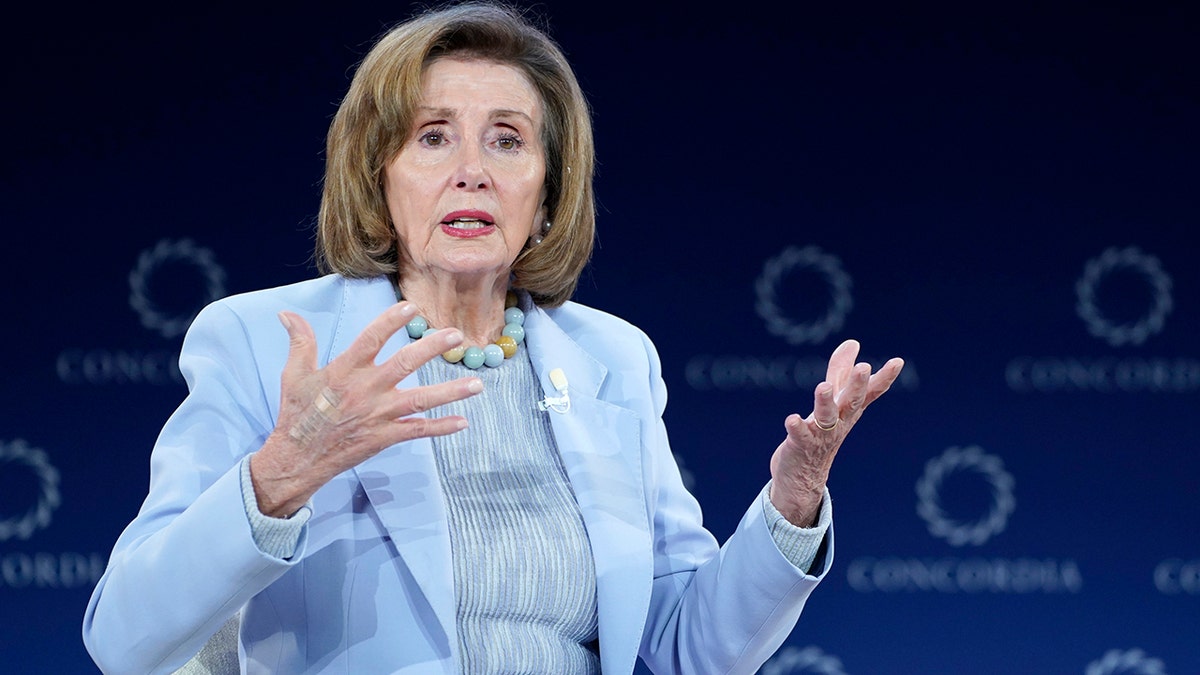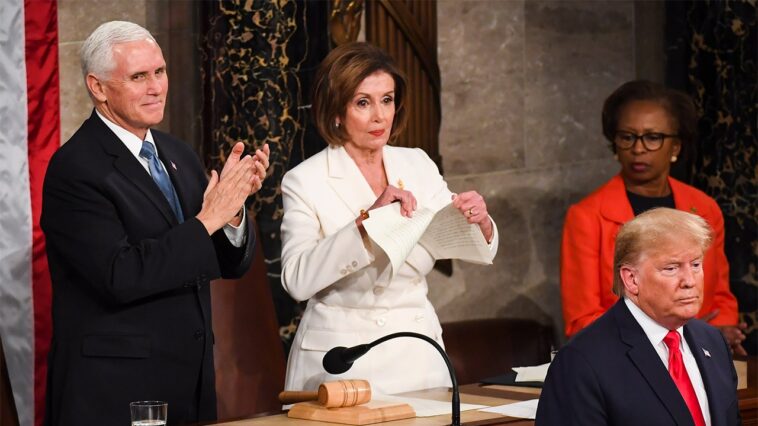NEWYou can now listen to Fox News articles!
Former House Speaker Nancy Pelosi revealed Sunday that she didn’t intend to tear up President Donald Trump’s 2020 State of the Union address — the moment that went viral at the time when she was Speaker of the House.
During a conversation with ABC’s Jonathan Karl, Pelosi said her defining moments in her relationship with the president were “spontaneous.”
“People like the tearing up of the speech. I didn’t intend to go to the speech to tear it up. I just, the first part of it, I tore a page because he was lying. And then the next page, then the next page. I thought it was a manifesto of lies all throughout, so I better tear up the whole speech. Now, the speeches are on strong paper, so you have to do it a few times to get it done. But I had no intention of doing that. I thought, my staff was going to die,” Pelosi said.
She also talked about an image of her pointing a finger at Trump during a 2019 meeting that included the cabinet.

Former House Speaker Nancy Pelosi (D-Calif.) rips tears up her advanced copy of President Donald J. Trump’s State of the Union address before members of Congress in the House chamber of the U.S. Capitol Feb. 4, 2020 in Washington, D.C. (Toni L. Sandys/The Washington Post via Getty Images)
NANCY MACE CLAIMS NANCY PELOSI “WAS A MORE EFFECTIVE HOUSE SPEAKER THAN ANY REPUBLICAN THIS CENTURY
The former House Speaker said she gets more requests to sign that image than anything.
“You know what I’m saying when I go out the door? I’m leaving here because I’ve had it with you, Mr. President. With you, all roads lead to Putin,” she told Karl, who noted that the White House put the picture out and called Pelosi “crazy.”
“They did me a favor,” she added.
Fox News Digital reached out to the White House for comment.
Pelosi announced in November that she would not seek re-election after completing her current term.

The Hon. Nancy Pelosi, Speaker Emerita, U.S. House of Representatives, speaks onstage during the 2025 Concordia Annual Summit at Sheraton New York Times Square on Sept. 23, 2025 in New York City. (Riccardo Savi/Getty Images for Concordia Annual Summit)
NANCY PELOSI’S CRITICS CELEBRATE RETIREMENT ANNOUNCEMENT
Karl also asked what she wanted to be remembered for.
“I’m very proud of the Affordable Care Act. I think it just made a big change in terms of what working families need for their health and their financial health. We will continue to have that fight. It’s not a value that is shared with the Republicans. The healthcare bill was a way of not only meeting health needs but the national needs of families. If I were to be remembered for one thing, it’s the Affordable Care Act,” she said.
CLICK HERE FOR MORE COVERAGE OF MEDIA AND CULTURE

Speaker Emerita Nancy Pelosi (D-CA) listens to House Minority Leader Hakeem Jeffries (D-NY) speak at the U.S. Capitol on November 20, 2025, in Washington, DC. (Tasos Katopodis/Getty Images)
CLICK HERE TO DOWNLOAD THE FOX NEWS APP
Hanna Panreck is an associate editor at Fox News.



